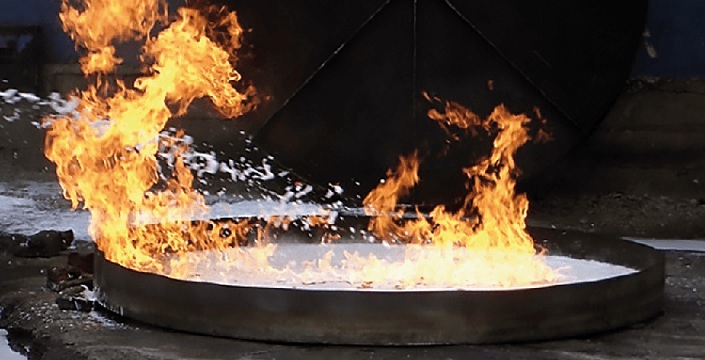

The EN 1568 standard, a European standard, contains guidelines for critical testing of a foam in sea and potable (fresh) water, both in terms of extinguishing and reflux. EUROLAB laboratory provides testing and testing services within the scope of EN 1586. In four titles, this standard has been published in all countries.

This European standard is a set of standards that specifies requirements for commonly used fire extinguishing equipment.
The extinguishing medium includes foam concentrates, liquids, powders or gases, which are used to achieve a much better extinguishing performance than water. These media are used in foam sprinkler systems, emergency vehicles, or portable or mobile fire extinguishers. In this respect, these environments are necessary for an effective firefighting. However, in practice, there is no legal regulation requiring a minimum level of performance for fire extinguishing environments. That's why the EN 1568 set of standards remains the benchmark for assuring performance. Tests of fire extinguishing agents in advanced laboratories are carried out and reported in accordance with the requirements of the said standard.
Foam has been used as a fire extinguishing agent for flammable and combustible liquids for years. Unlike water, dry chemical compounds, carbon dioxide and other similar extinguishing agents, a stable aqueous foam extinguishes a flammable liquid fire with combined cooling systems such as separating the flame source from the product surface, suppressing vapors and suffocating. The foam also provides long-term assurance against re-ignition.
Water is a heavy substance and if applied directly to the fuel surface it has little effect on quenching or vapor suppression and will sink to the bottom. If the liquid fuel heats up above 100 degrees, the water boils below the fuel surface and ejects the fuel from the confined space, thereby magnifying the fire. For this reason, foam is considered the primary extinguishing agent for all potential hazards or areas where flammable liquids are transported, processed, stored or used as an energy source.
In practice, foam concentrates are produced in different types and have different properties.
As a fire extinguishing agent, foam is a fixed mass of small air-filled bubbles with a lower density than oil, gasoline or water. Essentially, the foam consists of three components: water, foam concentrate, and air. When these are mixed in the right proportions, the three components form a homogeneous foam blanket. Foam concentrate is a substance that, when mixed with water in the right ratio, forms a foam solution. The foam concentrate tests described in the EN 1568 series of standards cover this component.
Fire consists of the following four elements: heat, fuel, air (oxygen) and chemical chain reaction. Under normal conditions, if any element is intervened, the fire is extinguished. Fire extinguishing foam does not interfere with the chemical reaction. Foam works by suffocating the fire, covering the fuel surface, separating the flames or ignition source from the fuel surface, cooling the fuel and adjacent metal surfaces, and suppressing the release of flammable vapors mixed with air.
Among the numerous test, measurement, analysis and evaluation studies it provides for businesses in various sectors, our organization also provides fire extinguishing agents, foam concentrates testing services within the scope of EN 1568 standard, within the framework of national and international standards, with its trained and expert staff and advanced technological equipment.
To get an appointment, to get more detailed information or to request an evaluation, you can ask us to fill in our form and reach you.